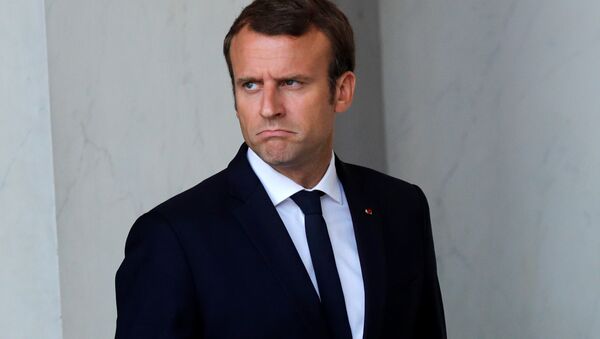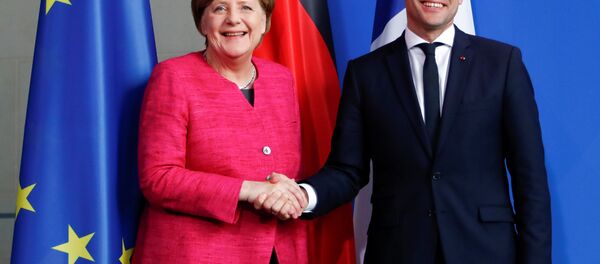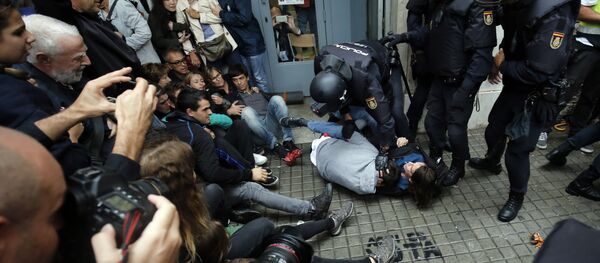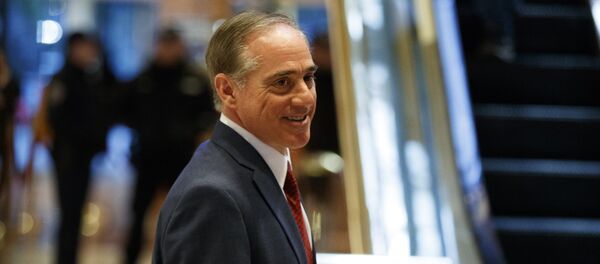PARIS (Sputnik) — The proposal of French President Emmanuel Macron on the establishment of new EU institutions for increased security in the bloc's member states are very difficult to put into practice due to the significant differences in the states’ mentality as well as legislation regulating anti-terrorism and intelligence activities, experts told Sputnik.
Last Thursday, during his speech on the future of Europe, Macron proposed the creation of the pan-EU institutions for improving the bloc's security, namely an intervention force complementing NATO, a civil protection force, and an anti-terrorism European Intelligence Academy.
LEGISLATIVE SYNCHRONIZATION WITHIN EU
Jean-Vincent Brisset, a retired brigadier general of the French Air Force and a senior research fellow at the French Institute for International and Strategic Affairs (IRIS), said that by making such proposals appealing to the EU public, Macron wanted to "have an image of an alternative leader of Europe."
"As far as the anti-terrorist force is concerned, it is always possible to do something else. But in reality, we already failed to create a European defense, we already have something called NATO on the military scale, we have Interpol, it is an intermediary force between the police and the military on the European level … It is not functioning because regarding terrorism the main thing is harmonization of legislation, harmonization of procedures and the exchange between intelligence services," Brisset said.
Such synchronized work between the EU member states’ intelligence agencies requires agreement between all the 28 states, he explained.
Brisset called Macron’s ideas "Utopian" as there was no basis currently to implement them.
Speaking about the idea of a joint EU intervention force, Francois-Bernard Huyghe, a research director at IRIS, also agreed that Macron’s initiative was rather a likable discourse which was not easy to implement over the differences in views between different EU member states.
"I have a hard time visualizing how we can have a common European defense in Europe which is so much divided, how France of Macron can have the same objectives as Hungary of [President Viktor] Orban, for example. The question is about the political will that can be behind such an initiative rather than just conducting joint military operations," the expert, specializing in radicalization and terrorism, pointed out.
Huyghe added that it would be difficult for all the 28 EU member states to agree on various aspects of military force organization.
"The second question I have is how it will go in line with NATO because all the recent interventions made by France, for example, were made together with NATO. So I do not see how these two systems can function together," Huyghe added.
In Huyghe’s point of view, the creation of an EU army, as proposed by Macron, would not be effective in the fight against terrorism as it would duplicate the existing anti-terrorism coalitions in various Middle Eastern countries.
NEED FOR ACTIVE MEASURES
Brisset maintains that for increased security in the EU member states, all the differences between the countries' laws, the way the intelligence services work and the border crossing regulations must be synchronized.
"Those who want reality would say that before talking about the creation of an anti-terrorist force let us start with harmonization of legislation and procedures. It is much more difficult and much more courageous than a likable rhetoric," the expert pointed out.
In Huyghe’s point of view, what really needs to be done in order to enhance security and fight against terrorism is to tackle the bureaucratic difficulties that the EU member states’ anti-terrorism and intelligence services are currently facing, Huyghe explained.
"In France, we have something like 22 different services dealing with the problems of terrorism … Firstly, we need a centralization in every country and for the moment when the intelligence services start sharing their information on terrorists between 28 countries it will not be as secret as it was before, so this centralization is of an extreme importance," Huyghe pointed out.
FRANCO-GERMAN COOPERATION
Huyghe recalled that European defense is based on French-German military cooperation.
"I do not think it can be a joint force of everybody, it will rather be a Franco-German force… We need to wait and see the reorganization of the German government," the expert said, referring to the country’s recent Bundestag election.
"We can end up with some enhanced cooperation agreement between several European countries, who will agree to that, and it will be the same thing as we saw with the European security, with some pompous Chiefs of Staff with no real power behind them," Brisset pointed out.
Brisset also suggested that Macron would not convince other EU member states on the creation of the joint anti-terror force in the short-term perspective.




